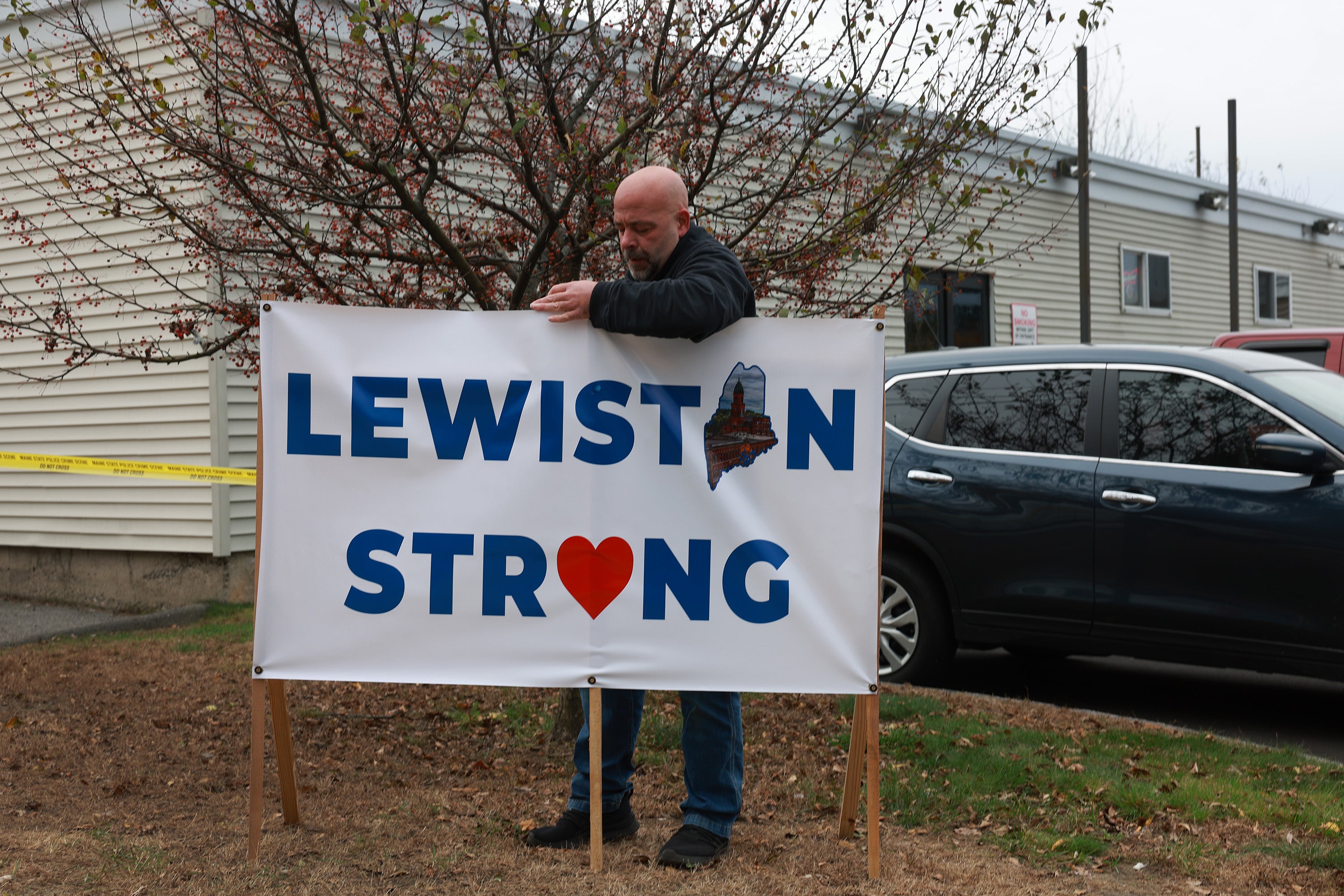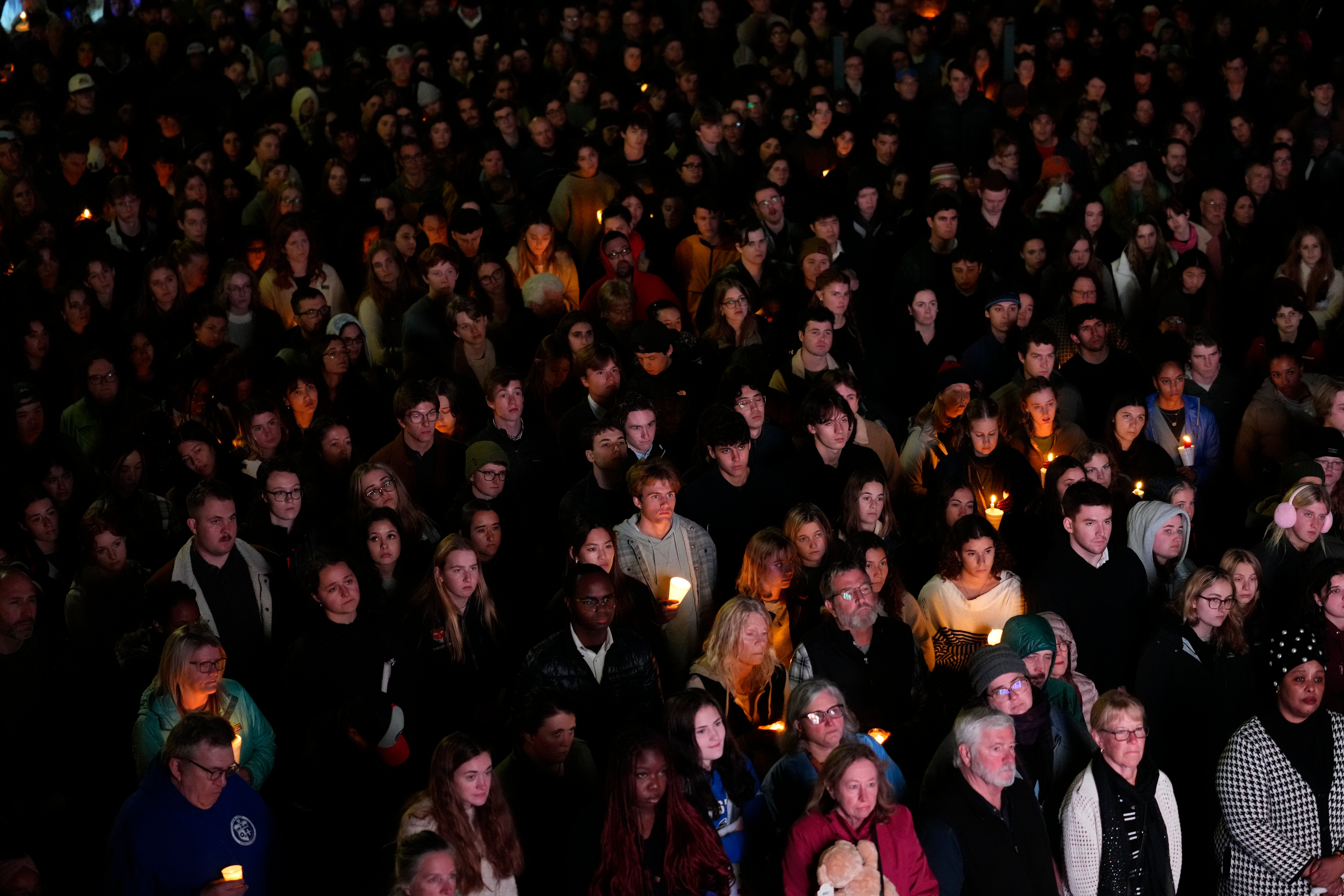New documents unveil Maine shooting suspect’s possible motive
Unsealed documents reveal the suspect believed people were spreading ‘conspiracies’ about him at the bowling alley and bar – and that he had met his ex-girlfriend at the bar
Your support helps us to tell the story
From reproductive rights to climate change to Big Tech, The Independent is on the ground when the story is developing. Whether it's investigating the financials of Elon Musk's pro-Trump PAC or producing our latest documentary, 'The A Word', which shines a light on the American women fighting for reproductive rights, we know how important it is to parse out the facts from the messaging.
At such a critical moment in US history, we need reporters on the ground. Your donation allows us to keep sending journalists to speak to both sides of the story.
The Independent is trusted by Americans across the entire political spectrum. And unlike many other quality news outlets, we choose not to lock Americans out of our reporting and analysis with paywalls. We believe quality journalism should be available to everyone, paid for by those who can afford it.
Your support makes all the difference.Newly-released court documents have shone a light on the possible motive behind the mass shooting in Lewiston, Maine – and the alleged gunman’s state of mind.
On Tuesday, Maine State Police and the Maine Department of Public Safety released a trove of affidavits, search warrants and other documents in the case, including harrowing witness accounts from suspect Robert Card’s son and brother as well as survivors of the massacre.
The documents reveal that witnesses told law enforcement officials that, in the run-up to the 25 October attacks, the US Army reservist believed that people at the Schemengees Bar & Grille and Just-In-Time bowling alley were spreading conspiracies online that he was a paedophile.
He also believed that the bar manager – one of the victims he killed in the shooting rampage – had once called him “gay”, witnesses said.
And he had also met his ex-girlfriend at the bar – an ex-girlfriend who had not long broken up with him.
Altogether, the new details reveal the 40-year-old’s ties to the bar and bowling alley, offering a glimpse into why he may have chosen to target the two locations in what marks Maine’s first major mass shooting.
The gunman first targeted the popular bowling alley just before 7pm on the evening of 25 October, killing seven people including a 14-year-old boy who was bowling with his father and their league.
He then headed straight for the Schemengees Bar & Grille Restaurant, opening fire there minutes later and killing another eight victims there. Three other victims died after being taken to a local hospital.
As well as the 18 victims killed, another 13 were injured in the attacks.
The shooting sparked a huge two-day manhunt, before Card’s body was found on Friday in a trailer at a Lisbon recycling plant where he used to work. He died by suicide, with officials confirming that he left a note behind in his home indicating his plans not to be found alive.
Back in May – five months before the mass shooting – Card’s family members contacted authorities about his concerning beliefs that there was a conspiracy involving people accusing him of being a paedophile, the new documents reveal.
According to an incident report, filed by a Sagadahoc County Sheriff's deputy, Card’s teenage son told police that his father began saying that he believed people were talking about him when they were out in public.

The encounters, which he said began around January time, would involve people who “were not even close to them and that nothing was being said in his father’s direction”.
His son “came to the conclusion that Robert was likely hearing voices or starting to experience paranoia”, the deputy wrote.
The re-occurring theme of this paranoia, he said, was that Card said “claiming people were saying derogatory things about him, such as calling him a pedophile”.
This escalated over time with Card’s son revealing that during a visit to his father, he grew “very angry” with him – and even accused his own son of saying things behind his back.
This account about Card’s concerning mental state being centred on fears of a paedophile conspiracy against him was echoed by a number of other witnesses, the documents show.
Card had texted his brother about taking legal action against the people he claimed were calling him a paedophile, his sibling told authorities.
Meanwhile, a member of the Army Reserves unit said that Card had accused other soldiers of calling him a sex offender.
This incident in the military led the Army to send him for a mental health evaluation back in the summer.
Card went on to claim that four local businesses he frequented – including the two targeted in the massacre – were broadcasting online the claims that he was a paedophile.
Over time, Card also believed that some family members were involved in the conspiracy, witnesses said.
According to an affidavit, the “conspiracy” appears to have derived from him taking his ex-girlfriend’s two young daughters out for something to eat at Schemengees.
“That is where the pedophile thing in Robert’s head came from as Robert was there with [his girfriend’s] two daughters on occasions and felt that people were looking at him,” the document states.
He also told the witness that Joey Walker, the bar manager, had “called him gay”.

Walker was one of the 18 victims killed in the shooting. It is unclear if Card intentionally targeted him when he opened fire at the bar.
Card had also met his girlfriend at Schemengees during a cornhole tournament, a witness told law enforcement.
The couple split in February, with Card appearing to unravel from there, the affidavit states.
He began wearing hearing aids, suffered significant weight loss and started saying “crazy things”, witnesses said.
In July, Card spent time at a psychiatric hospital in New York and was prescribed medication.
The Army declared him non-deployable and – in September – a welfare check was requested of local law enforcement amid concerns that he would “snap and commit a mass shooting”.
A statewide alert was also issued to find Card.
But after two unsuccessful checks on his home, the alert was cancelled on 18 October.
One week later, Card embarked on his deadly rampage.
As news of the shooting spread across the Lewiston community, Card’s family instantly feared that he was the gunman.
Within just 15 minutes of shots being fired at Schemengees, his sister contacted police and handed them his name.
